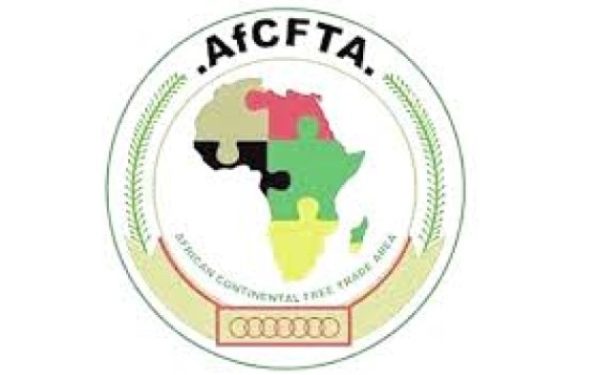The Ministry of Trade and Industry will collaborate with financial institutions to establish Special Financing Windows for products of strategic sectors to harness the benefits of Africa Continental Free Trade Area (AfCTA).
The Ministry said it would ensure that Ghanaian businesses benefited from the roll out of the proposed Pan-African Payment and Settlement System (PAPSS) by Afrexim Bank and the Africa Trade Insurance (ATI) to provide export credit, insurance and guarantees for businesses in Africa under the AfCFTA agreement.
this was contained in a speech read on behalf Mr Allan Kyeremanten, Minister of Trade and Industry, in Accra at the Graphic Business and Stanbic Bank Breakfast meeting on the theme: “leveraging AfCFTA: The Critical Success Factors”.
Currently, the Monetary Policy Rate, which has become an important benchmark for pricing lending rates in Ghana, stands at 14.5 percent compare to 3.5 percent in South Africa, 4 percent in Cote d’Ivore, 7 percent in Kenya and 11.8 percent in Nigeria.
He announced that government since 2017 had implemented a number of interventions aimed at supporting the business community with improved access to finance as well as reduce the cost of credit.
These include the Financial Stimulus Package for local industries, implemented with the support of participating financial institutions; the banking sector reforms which had yielded improved liquidity in the sector; the proposals to establish a Domestic Credit Rating Agency to assist firms with access to capital; and Ghana Stock Exchange Market Initiatives to help attract capital to Ghanaian businesses.
He said under the National Action Plan for Boosting Intra-African Trade, the government was seeking to bridge the information gap by providing adequate, easily accessible, and timely information necessary for businesses to take full advantage of the opportunities under AfCFTA.
The Minister said the Ghana Export Promotion Authority and the National AfCFTA Coordinating Office had intensified activities under the One-stop Shop Market Hub for the provision of integrated relevant exports trade information, including linking the Hub with the African Trade Observatory which had been established as one of the operational instruments under AfCFTA.
In addition, Mr Kyerenmanten said the Ministry was developing a structured framework to assist the Ghanaian private sector to establish regional networks to share information on business, export, and other market opportunities across Africa.
He said the Ministry with support from the African Development Bank and International Fund for Agricultural Development had established 67 Business Resource Centres across the country to provide business development services to Micro, Small and Medium Enterprises (SMEs) as well as serve as service centres at the district level.
Mr Kyerenmanten said in 2018, the total imports by Ghana amounted to about $12 billion, stressing that the top 30 imported commodities which constituted about 57 per cent of the total annual import bill in the same year were largely from outside the continent of Africa.
On the other hand, Ghana’s total exports in 2018 was $14. 8 billion including non-traditional exports of about $2.9 billion, a significant proportion of the amount constituted exports to market destinations outside of Africa in Europe, North America, and Asia.
Mrs Emily Mburu-Ndoria, Director, Trade in Services, AfCTA Secretariat, said African countries had about 107 products to trade among themselves and called for proper harmonization in all aspects of the sectors to utilize the full benefits of AfCTA.
She said The AfCFTA was expected to boost Ghanaian exports, stimulate investments and innovation, foster structural transformation, improve food security, enhance economic growth, and export diversification.
Mr Humphrey Ayim-Darke, Vice President of Association of Ghana Industries, SMEs, commended government for the initiatives put in place for the successful implementation of AfCTA and urged government to scale down taxes to ease ways of doing businesses.






